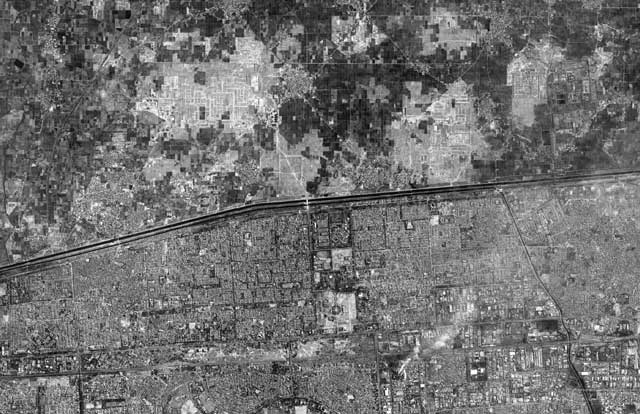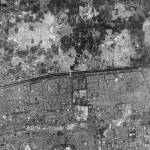James Wisniewski
ARCH-4980.2 | Julia Watson, Assistant Professor
THE FRINGE CITY
[Re]Negotiating Urban and Agrarian Landscapes
JAMES WISNIEWSKI
The birth of civilization marked many things for man – among them the agricultural system of producing food. As populations increased, and with the expansion of technology, we began to see a rift emerge between where this food was produced and where it was consumed.
This project first diagnoses the cause of the dichotomy between the urban and agrarian landscapes within the contemporary civil model. With growing populations, agricultural systems are forced further away from urban conditions in order to support the increasing demand for food. Unfortunately, as these urban conditions need to expand in order to house an increasing number of people, it sprawls into the agrarian landscape and effectively decreases the amount of arable land – land which actually needs to increase in size to continue to support the urban condition. How can the gap between what is urban and what is agrarian be blurred in order to create a sustainable, reciprocal way of living?
The site is located in Faridabad, India – a region where the dichotomy between these two conditions is as strong as ever – along the physical divide between the urban and agrarian landscapes of the city created by two irrigation canals and a highway. Here, the overpopulation due to urbanization is coupled with the poor techniques associated with industrialized farming, and the simultaneous degradation of both the urban and agrarian systems has led to unhealthy living conditions, largely attributed to water pollution among other factors.
This project weaves the urban and agrarian conditions into one another to create a cohesive, symbiotic meshwork that increases biocultural diversity, with the street market or bazaar acting as the binding agent in this synthesis. Instead of using the contemporary design approach of Agrarian Urbanism, where there is an attempt to place Agriculture (as it currently exists) into Urbanism (as it currently exists), this intervention strips Agriculture and Urbanism down into micro-systems made up of dynamic and informed processes before re-combining them into a new mega-system created through the integration of those processes, resulting the physical manifestation of “The Fringe City.”

